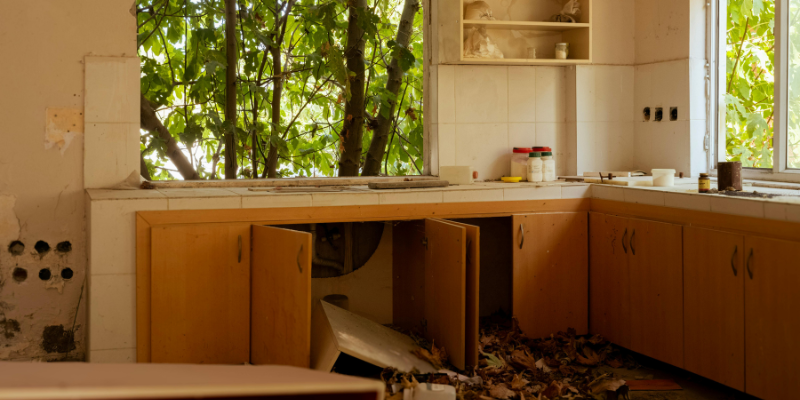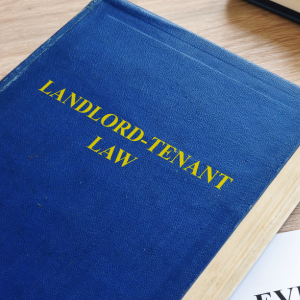
Understanding Your Rights as a Landlord in Texas
Comprehending a landlord’s responsibility in Texas is essential so that you know how to address the damage done by the tenants to the property. The law in Texas grants a particular set of duties alongside rights to the proprietors concerning the upkeep of the property and the surrounding area.
Landlords have the authority to mandate reimbursement from tenants for any damages that are not considered normal wear and tear of the property. Landlords should check the unit before the tenant moves in and after the tenant moves out to have a clear record of the property condition.
In Texas, a landlord can use the security deposit for any damages inflicted by the tenant or the tenant’s guests if they adhere to the property code regarding time frames for refunds and deductions. Furthermore, the landlord may pursue legal action if the proportional damages owed are greater than the deposit or if there is contention over who the damages are attributed to.
Understanding the Texas landlord and tenant laws equips a landlord to handle property damage issues more forcefully while remaining legal. For these legal clarifications and navigations, contact Southern Hills Home Buyers.
Effective Communication Strategies with Tenants about Property Damage
Effective communication with tenants about property damage is crucial for Dallas landlords who aim to maintain positive relationships and preserve property. Effective communication solves problems earlier and reduces conflict.
Explaining the damage, the required repairs, and the pertinent costs associated with the issue needs to be done using straightforward language; otherwise, it creates a problem. After problem identification or reporting, trust is built through communication that encourages discourse.
Cultivating positive relationships with tenants while preventing excessive, unnecessary damage to the property requires effective communication, such as confirming empathy. Listening to tenant issues while explaining the rational need for prompt incident reporting requires balanced two-way dialogue. Establishing two-way communication ranges, for example, through regularly scheduled check-ins or maintenance inspections, allows for easily set boundaries that define the ongoing dialogue concerning the property’s condition.
Written confirmations regarding agreements help enhance role clarity for both parties. Providing repair schedule documents increases transparency, even in the form of scopes of work. Dallas landlords who employ these techniques can positively interact with their tenants while maintaining control over the damage caused by the tenants to the property.
Evaluating Repair Costs and Financial Impacts of Tenant Damages

When addressing tenant property damage, Dallas landlords must carefully evaluate repair costs and assess the financial impacts to ensure effective resolution. Accurate estimation of repair expenses is crucial, as it influences decisions regarding security deposit deductions and potential legal actions.
Landlords should obtain multiple quotes from reputable contractors in Dallas to gauge the actual cost of repairs, considering both material and labor expenses. It’s important to document all damages thoroughly through photographs and detailed reports, which can aid in negotiations with tenants or insurance claims.
Understanding the financial implications involves analyzing how repair costs affect overall property value and rental income, potentially impacting cash flow and future leasing strategies. By maintaining a comprehensive record of all property damages and associated costs, landlords can better manage their financial planning while ensuring compliance with Texas landlord-tenant laws.
This approach helps mitigate immediate financial burdens and preserves long-term investment returns for Dallas property owners.
Best Practices for Inspecting Rental Properties Before and After Leasing
- Conduct a Thorough Pre-Lease Inspection
– Carefully assess and document the property’s condition before leasing using detailed notes and clear, date-stamped photographs. - Establish a Condition Baseline
– The initial inspection should set a clear baseline of the property’s original state to protect both landlord and tenant. - Perform a Comprehensive Move-Out Inspection
– After the lease ends, conduct a detailed walkthrough to identify any changes or potential damage caused during the tenancy. - Compare Photos to Evaluate Damage
– Use before-and-after images to distinguish between normal wear and tear and actual tenant-caused damage. - Use a Standardized Checklist
– Implement a consistent inspection checklist to ensure thorough, fair, and legally sound evaluations each time. - Communicate Maintenance Expectations
– Discuss upkeep responsibilities and property care standards with tenants at move-in and throughout the lease. - Maintain Organized Records
– Keep detailed records of all inspections to support claims, resolve disputes, and protect your investment.
Essential Documentation for Property Damage Claims in Dallas
When dealing with tenant property damage claims in Dallas, landlords must prioritize thorough documentation to ensure effective resolution. Essential documentation begins with a detailed property inspection report, ideally conducted before and after tenancy, capturing the property’s condition with high-quality photographs or videos.
Landlords should maintain meticulous records of all tenant communications regarding property damage, including emails, text messages, and written notices. It’s crucial to have an updated inventory checklist that itemizes all fixtures and fittings within the rental unit.
Collecting repair estimates from licensed contractors can further substantiate the claim’s validity and provide a clear projection of potential costs. Keeping copies of any police reports filed due to intentional damage or vandalism will also support legal actions if necessary.
By assembling this comprehensive documentation portfolio, Dallas landlords bolster their position when addressing disputes and seeking compensation for damages through insurance claims or legal proceedings.
Legal Steps to Take When a Tenant Damages Property in Dallas, Texas

Step-by-Step guide to follow:
- Document the Damage Thoroughly
– Take clear photographs and write detailed descriptions of all property damage to create a solid evidence record. - Review the Lease Agreement
– Examine the lease terms to confirm tenant responsibilities related to property care and damage. - Provide Written Notice to the Tenant
– As Texas law requires, send a formal notice outlining the damages and allow the tenant a reasonable time to repair or cover the repair costs. - Deduct Repair Costs from the Security Deposit (If Applicable)
– If the tenant does not resolve the issue, landlords may deduct repair costs from the security deposit, but must provide an itemized list and supporting receipts. - File a Small Claims Court Case (If Necessary)
– If the damage exceeds the deposit or remains unpaid, landlords can file a claim in small claims court in Dallas to recover the remaining costs. - Stay Compliant with Texas Landlord-Tenant Law
– Follow all local regulations and legal procedures to handle situations and avoid liability properly.
Contact us for advice and expert guidance on the legal issues of a tenant-damaged property.
Insurance Options for Landlords Facing Tenant-caused Damage in Dallas
Landlords in Dallas facing tenant-caused property damage have several insurance options to consider, which can be crucial for adequate financial protection and risk management. Landlord insurance policies often cover various property damage inflicted by tenants, including vandalism and accidental destruction.
Landlords must review their existing policies to ensure they include adequate coverage for these scenarios. Additionally, loss of rent coverage can be beneficial if the property becomes uninhabitable due to extensive damage that requires repairs.
Some insurers offer specific endorsements or riders that provide extra protection against tenant-related incidents, giving landlords peace of mind. In Dallas, where rental properties are abundant, understanding the nuances of these insurance options is vital to safeguard investments and minimize out-of-pocket expenses when tenant issues arise. If you’re looking for a quick solution, working with a cash home buyer in Plano and surrounding cities in Texas can offer a fast, hassle-free way to exit a problematic rental situation.
Consulting with an experienced insurance agent familiar with the Dallas market can help landlords tailor their policies effectively to address potential risks associated with tenant occupancy.
The Role of a Property Manager in Handling Tenant Damage Issues
Dallas landlords’ property managers are crucial in addressing tenant property damage issues. They ensure that any damage is assessed, documented, and resolved efficiently. These professionals act as intermediaries between landlords and tenants, facilitating communication to identify the damage’s extent swiftly.
Property managers are responsible for conducting thorough inspections to evaluate the severity of the damage and determine whether it falls under tenant responsibility or normal wear and tear. They coordinate with repair services and contractors to obtain estimates and oversee repairs, ensuring quality work while minimizing costs.
By maintaining detailed records of all incidents and communications related to property damage, property managers provide landlords with valuable documentation that may be necessary for insurance claims or legal proceedings. Their expertise in local regulations ensures that all actions comply with Dallas rental laws, protecting landlords from potential liabilities.
Through practical conflict resolution skills, property managers can mediate disputes between tenants and landlords, fostering positive relationships and preventing escalating property damage-related issues.
When to Consult a Lawyer for Tenant Disputes
Dallas landlords may encounter complex situations when dealing with tenant property damage that require professional guidance. Consulting a lawyer is crucial when disputes escalate beyond simple repairs or the tenant refuses to take responsibility for the damages.
Legal expertise can be invaluable in interpreting lease agreements and local Dallas regulations to determine the landlord’s rights and obligations. A lawyer can also assist in drafting effective communication to tenants, ensuring thorough documentation of all incidents, and representing landlords in court if necessary.
Engaging legal services early can prevent minor issues from evolving into costly litigation, help landlords navigate tenant disputes more efficiently, and protect their rental investment.
Can a Landlord Sue a Tenant for Damages in Texas?

Certainly! Here’s a keyword-dense paragraph for your article: In Texas, landlords have the legal right to sue tenants for property damages that exceed normal wear and tear. When addressing tenant property damage effectively, Dallas landlords should first document all instances of damage with photographs and detailed records.
Providing the tenant with a written notice outlining the damages and associated repair costs is essential. If the tenant fails to compensate or make necessary repairs, landlords can file a lawsuit in small claims court for damages up to $20,000.
Understanding Texas landlord-tenant laws is crucial when pursuing legal action, as it ensures compliance with state regulations and strengthens the landlord’s case. Consulting with an attorney experienced in Texas real estate law can also be beneficial in navigating the complexities of suing a tenant for property damage.
By taking these steps, Dallas landlords can address tenant-caused damages effectively and protect their investment properties through the appropriate legal channels.
Is It Worth Suing a Tenant for Damages?
Dallas landlords must consider several factors when considering whether to sue a tenant for damages. Legal action can be costly and time-consuming, so it’s essential to evaluate the extent of the property damage and the likelihood of recovering costs through a lawsuit.
Landlords should first attempt to resolve disputes amicably by communicating directly with tenants and documenting all interactions related to the damage. Assessing the tenant’s financial situation is crucial; pursuing legal action might be impractical if they are unlikely to pay even after a court ruling.
Additionally, landlords should review their lease agreements and ensure they have followed all necessary procedures for notifying tenants about damages and repairs. Consulting with a legal professional familiar with Texas landlord-tenant law can provide valuable insights into whether litigation is advisable.
Ultimately, before deciding to sue, Dallas landlords should consider alternative dispute resolution options like mediation to save on legal fees and preserve tenant relationships where feasible or, if the situation becomes too burdensome, explore options to sell your house for cash in Mesquite and other cities in Texas as a quicker path to resolution.
Navigating Texas Laws on Security Deposits and Property Repairs
Navigating Texas laws on security deposits and property repairs is crucial for Dallas landlords seeking to address tenant property damage effectively. Texas law mandates that landlords must return a tenant’s security deposit within 30 days after the lease ends, making it essential to understand the conditions under which deductions are permissible.
Landlords can deduct from the deposit for damages beyond normal wear and tear, but they must provide an itemized list of these deductions along with any remaining balance. Familiarity with the Texas Property Code helps ensure compliance when assessing damages and determining repair responsibilities.
Clear communication with tenants about their obligations regarding property upkeep can prevent disputes. Maintaining detailed records of the property’s condition before and after tenancy is vital for substantiating claims against a security deposit.
By adhering to state regulations and fostering transparent interactions with tenants, landlords in Dallas can manage repair issues efficiently while minimizing potential conflicts over security deposits.
Crafting an Ironclad Lease Agreement to Protect Against Future Damages
Crafting an ironclad lease agreement is crucial for Dallas landlords aiming to protect their properties against tenant-induced damages. A comprehensive lease can be a powerful tool in preventing disputes over property damage by clearly outlining responsibilities and expectations.
For instance, landlords should include detailed clauses specifying maintenance obligations, procedures for reporting damages, and the consequences of tenants’ neglect or misuse. Language addressing normal wear and tear versus actual damage is essential, ensuring tenants understand their liability for repairs beyond standard depreciation.
Including a security deposit clause that aligns with Texas state laws can provide financial protection against unforeseen damages. Requiring tenants to obtain renters’ insurance can shield landlords from accidental or intentional damage costs.
To ensure enforceability, consulting with a legal expert when drafting the lease agreement can help identify potential loopholes and reinforce the landlord’s position in protecting their investment.
Preventive Measures for Minimizing Tenant-Induced Property Damage
Dallas landlords can significantly reduce tenant-induced property damage by implementing effective preventive measures. Conducting thorough tenant screenings is crucial, as landlords can identify responsible individuals with a track record of maintaining properties well.
Establishing clear and comprehensive lease agreements is another essential step. These documents should outline tenant responsibilities regarding property care and detail the consequences of neglect or intentional damage. Regular property inspections are also vital for catching potential issues early; these inspections should be scheduled at intervals to ensure tenants uphold their maintenance obligations.
Providing tenants with guidelines on proper property upkeep and offering resources or workshops about best practices in maintenance can further reinforce the importance of caring for the rental unit. Additionally, installing durable materials and finishes in high-traffic areas can help withstand wear and tear, minimizing damage over time.
Lords encourage tenants to report maintenance issues promptly by fostering open communication channels. This allows for timely repairs that prevent minor problems from escalating into significant damage.
Do you want to sell your house? Do you want to sell quickly, avoid expensive repairs, or just make an easy sale? Southern Hills Home Buyers is here to help. We make fair cash offers, care for all the details, and simplify the process. Do you want to sell or have a question? For an offer that doesn’t bind you, call us at (214) 225-3042. Start right away!
| MONEY DAMAGES | INSURANCE COMPANIES | NOTICE TO VACATE | EVICTIONS | EVICTED | POLICY |
| HEALTH | PHYSICAL HEALTH | DWELLING | DOORS | RIGHT TO REPAIR | PAYMENT |
| MONEY | JUDGMENT | FAILURE | DETECTORS | PROPERTY INSURANCE | INSURANCE POLICY |
| DATA | CARPET | ATTORNEY’S FEES | APARTMENT | AIR CONDITIONING | PHONE |
| SMOKE DETECTORS | SMOKE | SEWAGE | RAW SEWAGE | REAL ESTATE INVESTORS | LEGAL AID |
| INVESTORS | INTEREST | INSPECTOR | INFORMATION | HOMEOWNERS | FREQUENCY |
| FLOODING | COMPLAINT | COMPANY | COST OF THE | A TENANT’S SECURITY DEPOSIT | THE COST OF THE |
